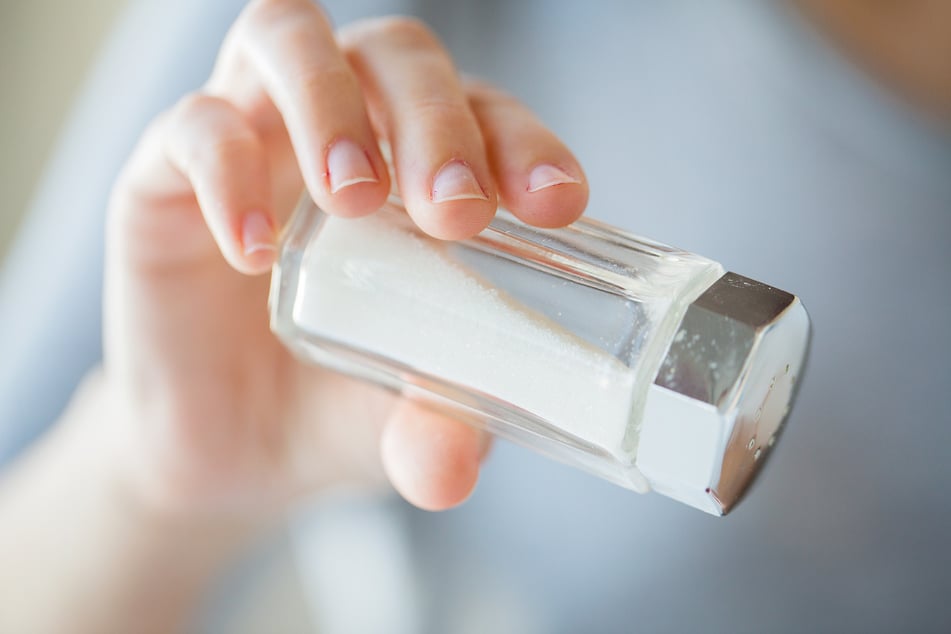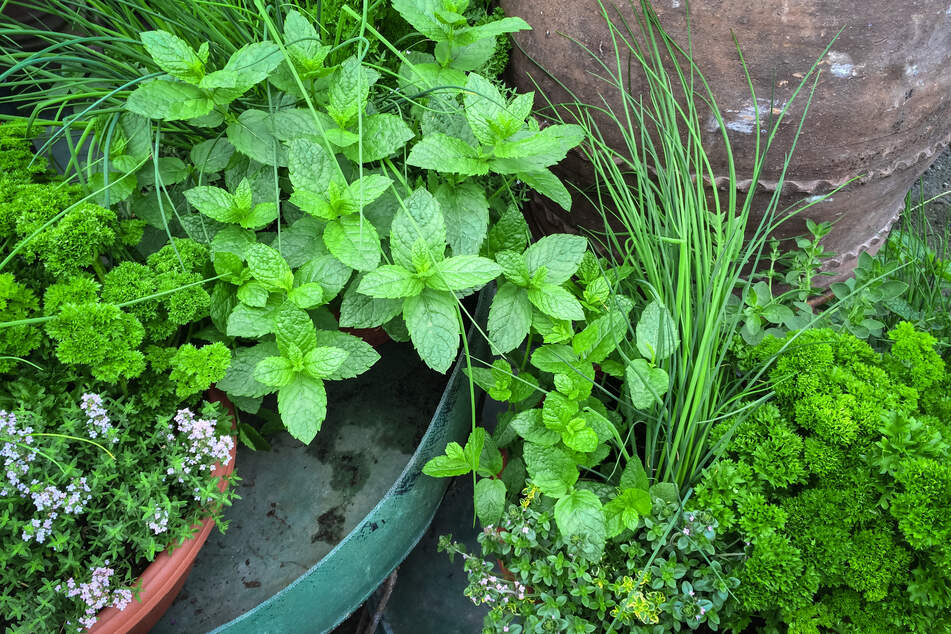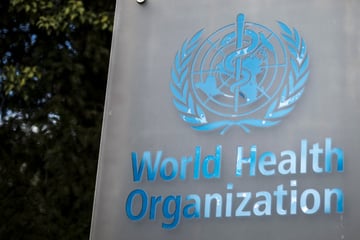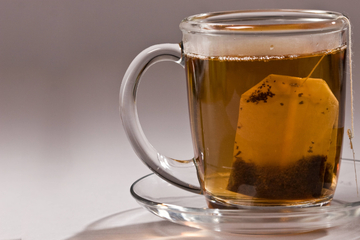Is salt good for you? How much is too much, and what are good substitutes?
Croissants might be delicious, potato chips might be the very definition of greasy goodness, and bread might seem darn-well healthy, but all of these foods also contain salt. Is salt good for you, and how much is too much?

Americans consume far too much salt on a daily basis. It's not a surprise, considering that the American diet is made up of high quantities of carbohydrates, sugar, and fat, and that salt is in basically all foods.
Some of the foods with salt may even surprise you. For instance, did you know that a slice of bread is actually quite salty?
While salt can be tasty, the problem is that too much leads to an increase in blood pressure and, down the line, a risk of heart attack and stroke.
Considering how dangerous this can be, it's a bit of a surprise that more hasn't been done to reduce the American public's salt consumption.
Let's dive into salt's health benefits and dangers: Are there alternative seasonings to salt that don't present the same risk, and how much salt should you consume on a daily basis?
Is salt good for you?
Salt, also known as sodium chloride, is vital for the functioning of the body. The problem is that most people consume far too much of the stuff each and every day.
The reality of salty goodness is that, sadly, that goodness is not actually so good for you. Sodium can cause serious health problems if you don't start controlling your diet better. After all, you don't need salt on those potatoes or broccoli, and you don't need to eat all of those chips. Look after yourself.
Even if salt does add a lot of flavor to your food and is a necessity of everyday life, it's more likely than not that you are consuming way too much.
Health benefits of salt
Whilst it's very easy to bash on the health problems associated with excessive salt consumption, it's important to note that this mineral is actually vital for the functioning of the human body. Without salt, you will find that your immune and nervous systems simply don't function properly.
Our bodies actually require salt to maintain the functioning of nerve impulses, the comfortable contraction and relaxation of muscles, and the balance of the digestive system.
Health dangers of salt
Salt can be very dangerous to human health if induced in excess. According to the CDC, around 90% of all Americans over the age of two consume too much of the stuff.
Excessive salt intake can lead to heightened blood pressure, which, in turn, increases the risk of heart attack or stroke.
Scary stuff, right? The CDC also report that heart attacks and strokes kill more people in the United States every year than any other cause.
How much salt per day?
People in the US generally consume far more salt than is recommended in the 2020-2025 Dietary Guidelines for Americans.
The guidelines state that an adult should consume less than 2,300 milligrams of salt every day, and according to the CDC, the average American consumes more than 3,400 mg each and every day.
Remember to keep an eye out for salt in foods you purchase from the supermarket, and reduce your inclusion of it when cooking. Reducing how much salt you add when preparing food can really help.
Too much salt reduces life expectancy

Salt is present in a huge variety of different foods. In fact, a slice of bread contains quite a decent amount of salt, as do other unassuming foods.
One of the bigger dangers, though, is the re-salting of dishes after they have been cooked. If you are using salty ingredients, and you add more salt, then your intake will likely be much higher than recommended.
US scientists recently reported that men who consumed too much salt had, on average, a life expectancy reduced by two years. In fact, those who added salt to their food were actually 28% more likely to die prematurely. The study also found that salt lovers who ate high amounts of fruit and vegetables actually had a lower risk of death.
Excessive salt intake is extremely dangerous for your health and can lead to premature death if not handled correctly. Make sure to eat healthy foods in general, but try to keep your salt consumption down in particular.
Too little salt may also be harmful

Salt is one of the main sources of sodium and chloride in our diet, substances that are central to maintaining fluid balance and cells. Whilst heightened salt intake can lead to severe health issues and even death down the line, too little will severely hurt your body.
According to the Harvard School of Public Health, salt and sodium are vital for nerve impulses, the proper operation of muscles, and the right balance of water within your system. All of these functions are important if you want to maintain a healthy and active lifestyle and keep your life expectancy up.
Make sure you are consuming salt within the regulations of the 2020-2025 Dietary Guidelines for Americans, which recommend 2,300 mg of salt a day. That's enough to do the job without hurting the human body.
Healthy salt alternatives

Seeing as most products available from your standard commercial outlets will have salt in them, it is unlikely that you will be able to cut salt out entirely. That's also not what you want because a reasonable amount of salt is good for you.
Instead, what you can do is use something else to season your food besides salt.
When you cook a steak or make a salad, the temptation to season it with salt may be high. Salt adds great flavor to your food and helps bring out the natural fats in meat.
But there are other things that you can use to flavor your food instead.
Here are a few alternative seasonings:
- Paprika
- Garlic
- Olive oil
- Sesame oil (for Asian cooking)
- Spices like cayenne pepper, cumin, etc.
- Black crushed pepper
There are hundreds of alternatives to using salt in your food. When you are cooking a recipe, be experimental and add new things you haven't tried before. It could actually lead to the discovery of something incredibly delicious you wouldn't have otherwise made.
Final tips
Salt is vitally important for a person's health, but that doesn't mean it should be consumed willy-nilly. Indeed, salt is actually very dangerous if consumed in excess of recommended health guidelines.
Of course, it is okay to have a little more than the recommended daily dose of salt from time to time, but if you consume too much, you could be at risk of developing heart problems. As in many things, moderation is key.
Cover photo: 123RF/dolgachov





